Budo - Term Explained
Share

In a world full of chaos and conflict, one finds solace in the ancient art of budo.
Contrary to popular belief, budo is not just about punches and kicks; it's a way of life.
By embracing the martial way, individuals embark on a journey of self-discipline, self-improvement, and respect for others.
They learn to control their emotions, act with honor and courage, and peacefully resolve conflicts through budo.
Join us as we explore Budo's profound meaning and significance in this enlightening article.
Key Takeaways
- Budo is a Japanese term that encompasses all Japanese martial arts, focusing on self-discipline, self-improvement, and respect for others.
- Budo practitioners strive to develop their physical and mental strength and moral character by controlling their emotions, acting honorably, and resolving conflict peacefully.
- Some popular budo disciplines include karate, judo, aikido, kendo, and iaido.
- Budo is not just a physical activity but a way of life that can help individuals become better people and contribute to making the world better.
The Origins of Budo
The origins of budo can be traced back to ancient Japan, where martial arts were practiced as a way to develop physical and mental strength.
Budo has evolved over time, influenced by various historical factors.
One significant influence was the samurai class, skilled warriors and martial arts practitioners. The samurai's dedication to discipline, honor, and self-improvement greatly shaped the principles and values of budo.
Budo also holds cultural significance in Japanese society, as it embodies the traditional values and ideals of the samurai.
In modern times, budo has taken on new interpretations, with many people practicing it for physical fitness, self-defense, and personal growth.
Budo continues to be a respected and cherished aspect of Japanese culture, representing the enduring legacy of the samurai and their commitment to martial arts.
The Philosophy Behind Budo
Why do practitioners of budo strive to develop their physical and mental strength?
Budo, the Japanese martial way, isn't just about physical combat and self-defense. It's also a path of spiritual development, personal growth, and ethical behavior.
Budo practitioners understand that physical fitness is essential for effective martial arts techniques and to maintain a healthy body. They train their bodies to become strong, flexible, and agile.
Similarly, mental focus is crucial in budo, as it allows practitioners to stay present in the moment, make quick decisions, and react effectively.
Budo cultivates personal growth by challenging individuals to push their limits, overcome adversity, and develop self-discipline.
Lastly, ethical behavior is at the core of budo, promoting respect for oneself and others, peaceful resolution of conflicts, and the pursuit of inner harmony.
Through these practices, budo practitioners strive to become not only skilled martial artists but also well-rounded individuals who embody the values of budo in their everyday lives.
The Principles of Budo
Many budo practitioners incorporate the principles of self-discipline and respect for others into their daily practice.
Budo isn't just about physical techniques but also about developing mental strength, moral character, emotional control, personal growth, and a peaceful mindset.
Here are some key points regarding the principles of budo:
- Budo and mental strength: Budo training requires mental strength, focus, and concentration. Practitioners learn to overcome challenges, push their limits, and develop resilience.
- Budo and moral character: Budo emphasizes the cultivation of moral values such as integrity, honesty, and kindness. Practitioners strive to be ethical individuals who act with honor and respect towards others.
- Budo and emotional control: Through training, budo practitioners learn to control their emotions, remain calm under pressure, and make rational decisions. They develop self-awareness and the ability to manage their emotions effectively.
- Budo and personal growth: Budo is a lifelong journey of self-improvement. Practitioners constantly strive to better themselves physically, mentally, and spiritually. They set goals, work hard, and continuously seek personal growth and development.
- Budo and peaceful mindset: Budo teaches practitioners to resolve conflict peacefully, to use their skills only in self-defense or to protect others. It promotes a mindset of peace, harmony, and non-aggression.
Budo and Self-Discipline
His dedication to budo and self-discipline has helped him develop his physical and mental strength.
Through the practice of budo, he's learned the importance of mental discipline and the power of mindfulness.
Budo not only involves physical training, but also personal growth and emotional control.
It's a way of life that teaches individuals to stay present and focused, to cultivate a strong mind, and to harness their emotions. Budo practitioners understand that true strength comes from within and that their actions should reflect their values of respect, honor, and peaceful resolution of conflict.
With each training session, he continues to deepen his understanding of budo and its profound impact on his overall well-being.
Budo and Self-Improvement
Budo practitioners believe self-improvement is a key aspect of their martial arts journey.
They understand that Budo isn't just about physical techniques but also about personal growth and development.
Here are four ways in which Budo contributes to self-improvement:
- Mental Strength: Budo training helps individuals develop mental resilience and fortitude. Through rigorous practice and facing challenges, practitioners learn to overcome obstacles and cultivate a strong mindset.
- Character Development: Budo emphasizes the development of moral values and virtues such as discipline, respect, and humility. Practitioners strive to embody these qualities both in and out of the training hall.
- Lifelong Learning: Budo is a lifelong continuous learning and improvement journey. Practitioners understand that there's always more to learn and are committed to ongoing study and refinement of their skills.
- Spiritual Enlightenment: Budo has deep spiritual roots and can be a pathway to self-discovery and spiritual growth. Through their training, practitioners seek to connect with something greater than themselves and cultivate a sense of inner peace and harmony.
Budo and Respect for Others
While practicing Budo, individuals learn to cultivate respect for others, ensuring a harmonious and inclusive training environment.
Budo emphasizes the importance of empathy, inclusivity, teamwork, humility, and community building.
Through the practice of Budo, individuals develop a deep understanding and appreciation for the experiences and perspectives of others. They learn to put themselves in others' shoes, fostering empathy and compassion.
Inclusivity is a fundamental aspect of Budo, as practitioners are taught to treat all individuals with respect and dignity, regardless of their background or abilities.
Budo also promotes teamwork, as practitioners work together to learn and improve their skills.
Humility is another key value in Budo, as individuals recognize that there's always more to learn and strive to constantly improve themselves.
Budo and Peaceful Conflict Resolution
Practitioners of Budo strive to resolve conflicts peacefully, using their martial arts skills only in self-defense or to protect others. Budo emphasizes non-violence and advocates for the peaceful resolution of conflicts.
Here are some ways in which Budo promotes peaceful conflict resolution:
- Conflict Resolution Techniques: Budo practitioners learn various techniques to de-escalate conflicts and diffuse tense situations without resorting to violence. They're trained to assess the situation, remain calm, and find peaceful solutions.
- Mindfulness Practices: Budo incorporates mindfulness practices to cultivate self-awareness and emotional control. By being present in the moment and understanding their own emotions, practitioners can respond to conflicts with clarity and compassion.
- Peaceful Warrior Mindset: Budo instills a mindset of being a peaceful warrior. Practitioners are trained to prioritize non-violence and use their skills responsibly, only when necessary. They strive to uphold moral values and act with integrity.
- Social Harmony: Budo aims to create social harmony by promoting mutual respect and understanding. Practitioners learn to value the well-being of others and work towards building harmonious relationships within their communities.
Through these principles and practices, Budo seeks to create a world where conflicts are resolved peacefully and social harmony is achieved.
Frequently Asked Questions
What Are Some Popular Budo Disciplines?
Some popular budo disciplines include karate, judo, aikido, kendo, and taekwondo. Karate techniques focus on striking and kicking, while judo emphasizes throws and grappling. Aikido training emphasizes harmonizing with an opponent's energy, and kendo principles focus on swordsmanship. Taekwondo competitions showcase high-flying kicks and fast-paced sparring.
How Does Budo Contribute to Self-Improvement?
Budo techniques promote mental discipline and personal growth. Through the practice of martial arts, individuals develop physical fitness, emotional resilience, and a sense of self-improvement. Budo contributes to overall well-being and character development.
What Is the Significance of the Term "Dō" in Budo?
The significance of the term 'dō' in budo lies in its representation of a philosophical and spiritual path. It encompasses the training methods and historical context of budo, while also finding modern applications in personal development and moral conduct.
What Is the Difference Between Budo and Bushido?
Budo and Bushido are both related to martial arts, but have different meanings. Budo refers to the practice and culture of martial arts, while Bushido specifically refers to the moral code of conduct for samurai warriors.
What Were the Roles and Characteristics of Samurai in Japanese Society?
Samurai were elite soldiers in medieval and early-modern Japan. They had roles such as serving in the military, acting as retainers to the daimyo, and enforcing the law.
They followed a strict code of conduct called Bushido and underwent rigorous training.
Conclusion
In conclusion, budo is like a blossoming cherry tree, its roots firmly grounded in discipline and its branches reaching towards self-improvement.
It's a path that leads individuals to become the best versions of themselves, like a samurai honing their skills with each sword strike.
Through budo, practitioners learn to navigate the storms of life with grace and cultivate a peaceful harmony within themselves and the world around them, like a gentle breeze rustling through a serene garden.
Related Posts
-
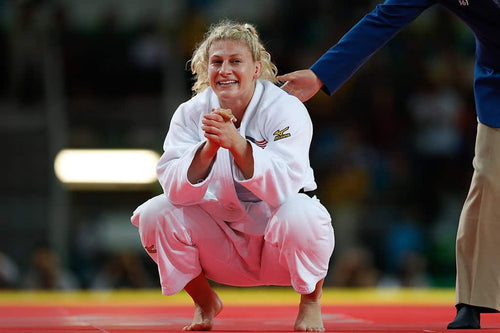
Kayla Harrison's Judo Journey - Judo Champion Turned MMA Powerhouse
Kayla Harrison is a groundbreaking American judoka who made history by becoming the first American woman to win an Ol...
-

Judo Atlanta - List of Judo Clubs in Atlanta area
In Atlanta, you can find excellent judo clubs such as Atlanta Judo Midtown and Black Ice Fitness where you can train...
-

Guram Tushishvili Disqualified - JUDO DRAMA with Teddy Riner
Guram Tushishvili Disqualified - Unsportsmanlike Behavior to French Judoka Teddy Riner Leads to Disqualification fro...
-

Yeldos Smetov - Judoka Profile
Yeldos Smetov, a name synonymous with excellence in judo, has carved out an illustrious career that stands as a beac...
-

Judo Olympics 2024 Results - Gold, Silver, and Bronze Medalists
The Judo Olympics 2024 Results are eagerly anticipated as the Paris Games approach, promising a thrilling display...
-

Judo For Self Defense - Here Is Why Is Judo Best For Self-Defense
Judo For Self Defense packs a punch. This martial art, born in Japan, turns attackers' strength against them. No nee...
-
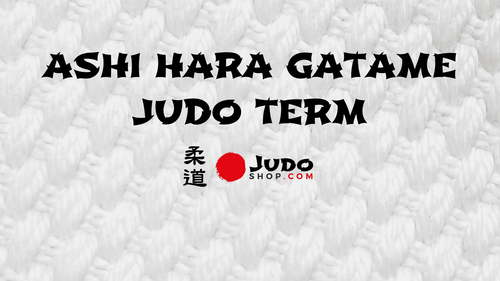
Ashi Hara Gatame - Judo Term Explained
Ashi Hara Gatame is a specialized technique in the martial art of judo, combining leg control, abdominal pressure, a...
-
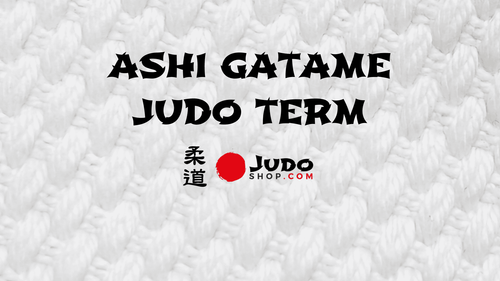
Ashi Gatame - Judo Term Explained
Ashi Gatame is a Judo technique referring to a kansetsu-waza (joint lock) where one uses their legs to immobilise ...
-

Judo Olympics 2024: Highlights, Athletes, and Schedules
Judo Olympics 2024 enthusiasts, mark your calendars! From July 27 to August 3, the Grand Palais Éphémère near the Eif...
-
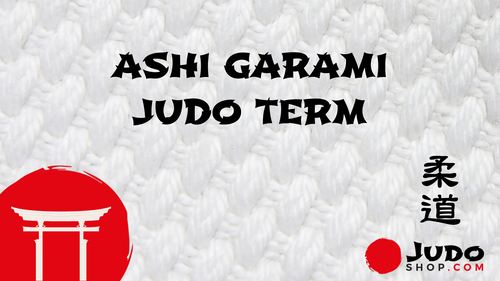
Ashi Garami - Judo Term Explained
What does "Ashi garami" mean in Judo? "Ashi garami" (足緘) is a Japanese term used in Judo that literally translates t...
-
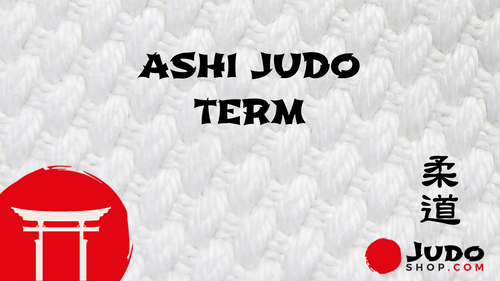
Ashi - Judo Term Explained
Ashi is term in Judo, referring to a leg or foot and category of judo techniques designed to unbalance and throw an ...
-
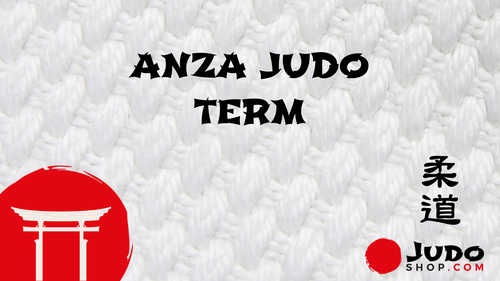
Anza - Judo Term Explained
The term Anza in Judo (安座) embodies a significant practice beyond merely sitting; it signals a deep respect and disc...
-
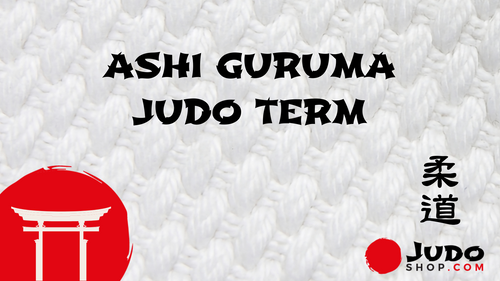
Ashi Guruma - Judo Term Explained
Ashi Guruma is a Judo term rooted in the martial art of Judo, which translates from Japanese as 'leg wheel'. This ju...
-
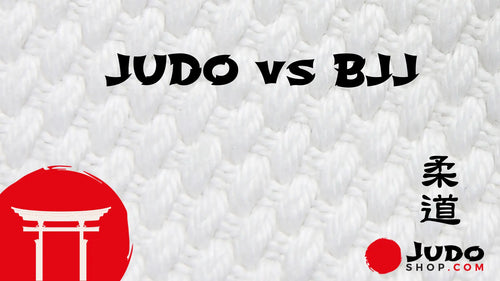
Judo vs BJJ? Of course Judo! Judo is better!
Welcome to Judoshop.com, the premier destination for judo enthusiasts worldwide. Here, we cater to beginners and vet...
-
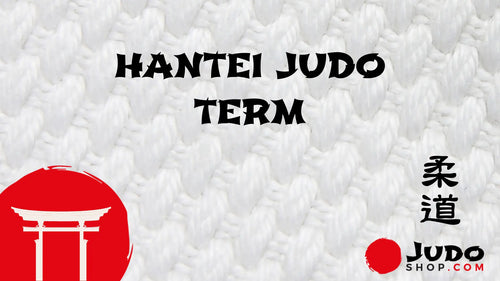
Hantei Judo Term Explanation
Contrary to popular belief, the term 'Hantei' in Judo is not just a simple decision-making process. It holds the p...
-
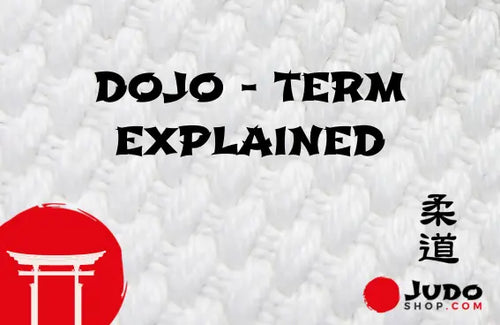
Dojo Meaning (updated 2023)
Dojos, places of immersive learning and meditation, hold great significance in martial arts. Derived from the Japane...
-
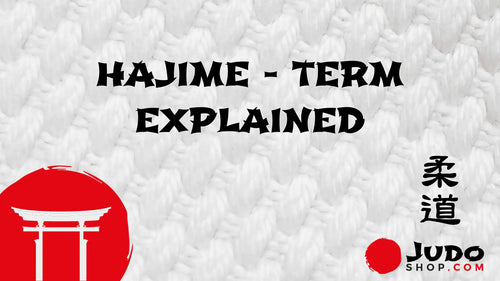
Hajime - Judo Term Explained
Ready to learn about Hajime in judo?It's all about using throws, pins, and joint locks on the mat. With the command ...
-
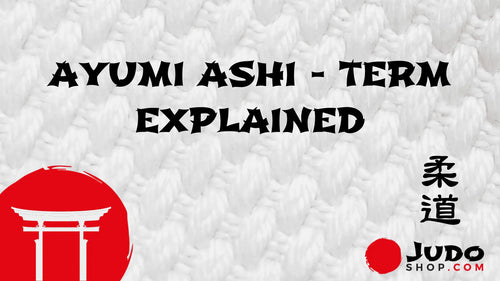
Ayumi Ashi - Judo Foot Work Explained
Are you ready to step into the world of Judo and master the art of Ayumi Ashi - 歩み足? This fundamental footwork techn...
-
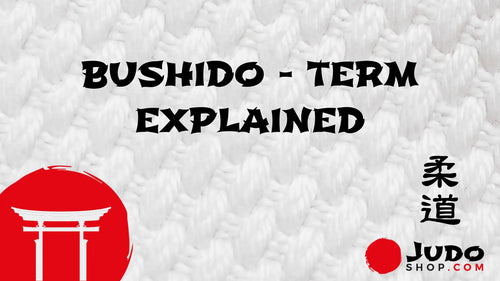
Bushido Explained
Bushido, the traditional code of ethics followed by samurai warriors in feudal Japan, is a subject that fascinates ...
-
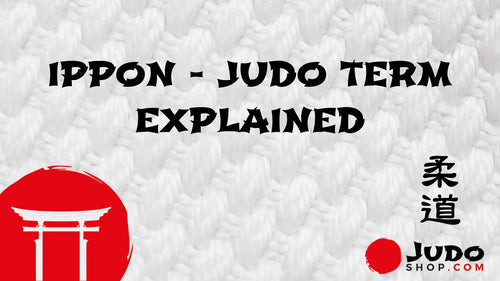
Ippon - Judo Term Explained
Imagine stepping onto the mat and feeling the adrenaline rush through your veins. In the world of judo, one ultimate...
-
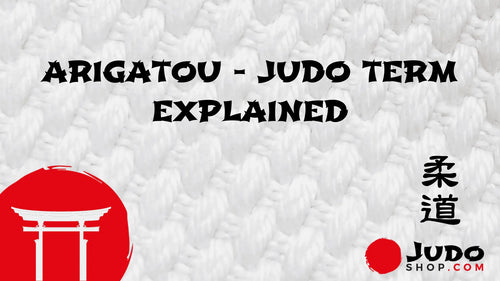
Arigatou - Judo Term Explained
Do you ever wonder about the true meaning behind the Japanese word 'Arigatou'? Well, wonder no more! 'Arigatou' is a...
-
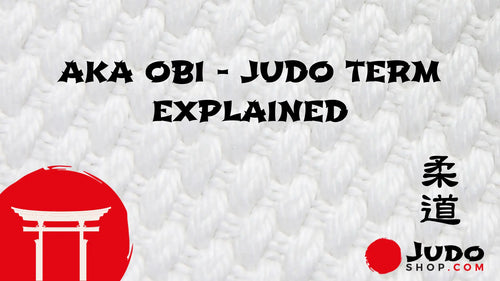
Aka Obi - Judo Term Explained
The aka obi, a red belt worn in Judo, is a prestigious symbol of expertise. Typically reserved for those holding a 9...
-

Why Are There 2 Bronze Medals In Judo
Judo is a unique sport that gives two bronze medals in each weight class. Many people wonder why this is done. To fi...
-
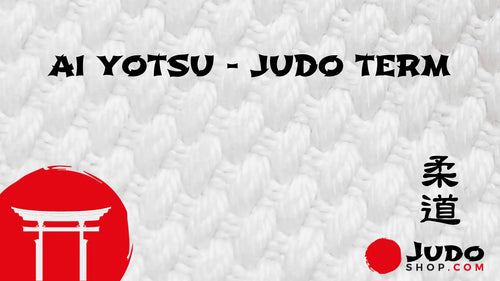
Ai Yotsu - Judo Term Explained
In the world of Judo, a term holds immense significance - Ai Yotsu. This grip, characterized by an intense and intim...
-
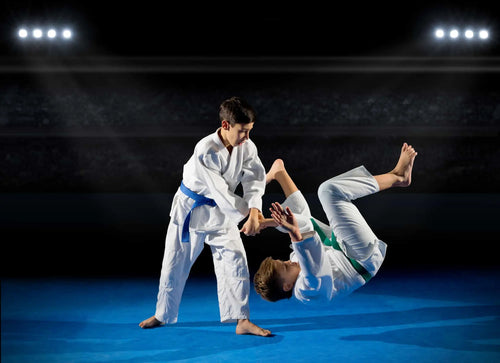
Is Judo Dangerous - Unveiling the Shocking Truths Behind this Ancient Martial Art
With its powerful throws and complex grappling techniques, one might wonder, "Is judo dangerous?" Yes, judo can po...
-

Is Judo The Toughest Sport - Unraveling the Grit and Grace of the Gentle Way
Judo, known as the Gentle Way, may seem like a paradoxical name for a sport, but don't let that fool you. While Ju...
-

Judo Terms - A Complete List of Judo Terms
Judo terms are the foundation of this martial art, and our collection is here to help both new and experienced judok...
-
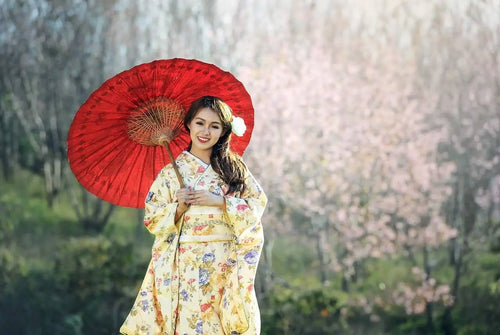
English to Japanese Kanji and Hiragana translations
Are you looking for an English to Japanese Kanji translation? Here you can find more than 30 examples of Kanji and ...




























